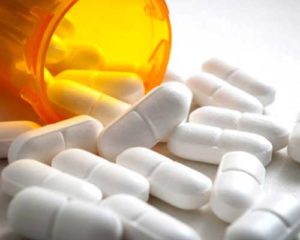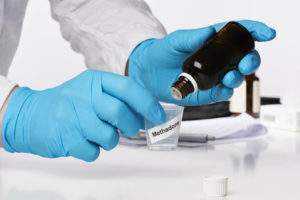All drug use, whether recreational or prescribed by a doctor, can lead to tolerance over time. Tolerance happens when your body no longer responds to a drug like it used to, and a higher dose of the drug is required to achieve the same desired effects.
When drugs are used repeatedly over time, enzymes in the body adapt to the substance. When this happens, the same amounts of the substance are no longer effective at producing their desired effects, such as pain relief or sensations of feeling high.
Tolerance to a substance can develop in people who are using drugs recreationally as well as under the supervision of a doctor.
Tolerance can happen whenever a drug is used repeatedly, and the body learns to metabolize the drug more quickly. As a result, the individual experiences less of a response to the drug. Once drug tolerance has developed, doctors can increase the dose they prescribe to the patient or switch to a different medication that provides similar effects.
It is important to note that drug tolerance is not the same as being addicted to a drug. Addiction implies an uncontrollable need to use a certain drug despite the negative consequences, explains the National Institute on Drug Abuse (NIDA). Tolerance simply means your body has adjusted to the substance and no longer responds to it. You can experience tolerance without experiencing symptoms of addiction, such as withdrawal and a compulsion to continue using.
How Do You Know If You've Developed Tolerance to a Drug?
Tolerance develops differently in every individual depending on their physical condition, physiological makeup, and the drugs they are using. There is no single timeline for when tolerance develops as it will be different from person to person.

Typically, tolerance develops over many weeks of using the same drug. Some people can have strong responses to drugs, such as LSD and cocaine, and develop tolerance after just one use.
Signs that you have developed tolerance to a specific drug include:
- Reduced experience of desired effects
- Reduced experience of negative side effects
- Your doctor has increased your dosage amount
- Your doctor switched you to a different medication
- You require more of the drug to feel high
What is Hydrocodone?
Hydrocodone is an opioid painkiller that is often prescribed to treat acute and chronic pain as well as severe cough. It is metabolized in the liver and thus poses a risk of liver toxicity in the case of overdose, especially when combined with other drugs like alcohol or acetaminophen.
Medical professionals warn that hydrocodone can be habit-forming, especially when used over extended periods. One of the dangers of developing a tolerance to hydrocodone is that people will be tempted to take higher amounts of it. The body’s response to the depressant effects of the drug, however, cannot keep up with suddenly increased dosages. As a result, users can put themselves at risk for overdose that includes suppressed respiratory function and even death.
MedlinePlus explains that suddenly increasing hydrocodone doses can cause slowed or stopped breathing. If you obtain hydrocodone through a doctor, they must closely monitor you for any signs of breathing problems. If you are using hydrocodone recreationally, it is important to be aware of the signs of a dangerous overdose, which include:
Signs Of Overdose
- Slowed breathing
- Sleepiness
- Muscle weakness
- Cold and clammy skin
- Narrow or dilated pupils
- Slowed heartbeat
- Coma
- Death
Unfortunately, far too many people across the country experience overdoses from opioids like hydrocodone. Between 2016 and 2017, more than 11 million people misused prescription opioids. On average, 130 people died every day from opioid-related overdoses. In total, more than 42,200 people died from an opioid overdose and 2 million-plus people suffered from an opioid use disorder.
Based on these staggering trends of opioid misuse across the country, the U.S. Department of Health and Human Services declared the opioid epidemic a public health emergency in 2017.
How to Safely Treat Hydrocodone Tolerance
Once tolerance has developed, it is important to treat it cautiously before dependence and addiction occur. The best ways to treat tolerance and prevent the development of anything more is to take hydrocodone exactly as your doctor prescribed and to not use the drug recreationally. By working closely with your doctor and clearly communicating the effects of hydrocodone that you are experiencing, you should be able to safely manage and control any tolerance you may develop.
When treating tolerance, doctors must pay close attention to physical symptoms their patient presents with. If hydrocodone use has not progressed to dependence or addiction, then tolerance symptoms can be treated relatively easily.
Researchers at the University of California San Francisco’s School of Pharmacy explain that doctors can treat tolerance by increasing dosage amounts or switching patients to an alternative medication. If signs of tolerance do not appear to be leading to dependence or addiction, it may be safe to keep patients on hydrocodone for the pain-relieving benefits it offers.
The second option of removing hydrocodone from the patient’s system is an effective way to reduce tolerance levels. When kept out of the system for a long enough period of time, the body has a chance to reset itself and can become less sensitive to the drug again.
“These options for treating tolerance, however, are only applicable for people who have not developed a physical dependence or addiction to hydrocodone. In the case of an opioid addiction, much more careful and gradual treatment steps must be taken.”
Opioid Addiction Treatment Options
If your hydrocodone use has progressed to addiction, there are treatment options available. Hydrocodone is misused by millions of people every year, and treatment programs have been developed in response to this crisis. One of the primary concerns of treatment for a hydrocodone addiction, or addiction to any opioid, is the management of physical withdrawal symptoms during the detoxification process.
Opioid withdrawal can pose serious risks to your health, and you likely need medical care to safely see you through the withdrawal period. The following are common symptoms of opioid withdrawal:
Opioid Withdrawal Symptoms
- Muscle aches
- Restlessness
- Anxiety and depression
- Teary eyes
- Runny nose
- Excessive sweating
- Sleep problems
- Abdominal cramping
- Chills
- Nausea and vomiting
- Diarrhea
- Blurry vision
- Rapid heartbeat
- High blood pressure
The most dangerous symptoms of opioid withdrawal include seizures and severe dehydration. These symptoms can be life-threatening, which is why medical and substance abuse treatment professionals recommend detoxing under the care of a medical professional. Depending on the severity of your symptoms, this could happen as part of a residential or outpatient treatment program.
Comprehensive hydrocodone addiction treatment begins with medically assisted detox. Simple medications like Tylenol may be given to manage headaches and muscle pains, and supportive care is provided.
Medications are commonly prescribed to greatly reduce the physical discomfort of withdrawing from opioids. Drugs like Suboxone and methadone are medications that are often used to taper people off the stronger opiates they have become addicted to. Milder medications that still attach to opioid receptors are used in medication-assisted treatment because they manage withdrawal symptoms well without producing euphoric effects.
The tapering method is the safest way to get people off the opioid they are addicted to. It slowly reduces opioid use, typically over a period of weeks, to avoid severe withdrawal symptoms and give the body time to adjust to living without the opioid in its system. People who have been using opioids for over two weeks are recommended to use the tapering method to reduce and eventually end their drug use. Generally, individuals are gradually tapered off the replacement medication. This should only be done under direct medical supervision.

Following a safe detoxification, individuals are encouraged to participate in a rehab program. Detoxification alone does little to promote long-term sobriety. In a rehab program, participants can expect to participate in a variety of therapies that help them gain a better understanding about their behaviors surrounding substance use, what caused the addiction to develop, what positive coping strategies can be used instead, and what support systems are available outside of treatment.
Addressing Tolerance
Hydrocodone is a serious drug that comes with a high risk of tolerance and addiction. When used under doctor supervision, these risks are minimized, though still present. If you suspect you are developing a tolerance to hydrocodone following medical or recreational use, speak with your doctor now about the safest ways to treat it before addiction develops.

